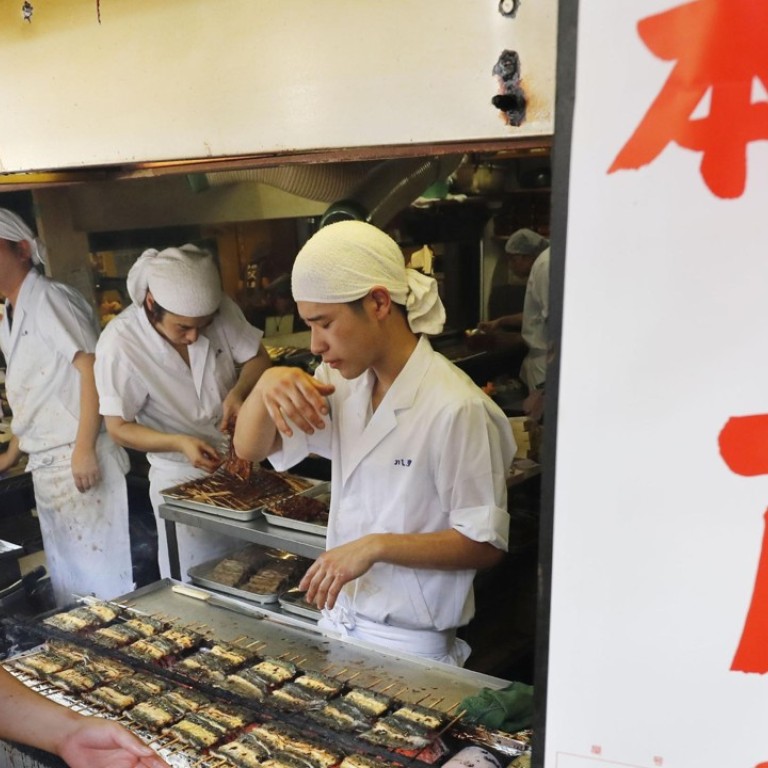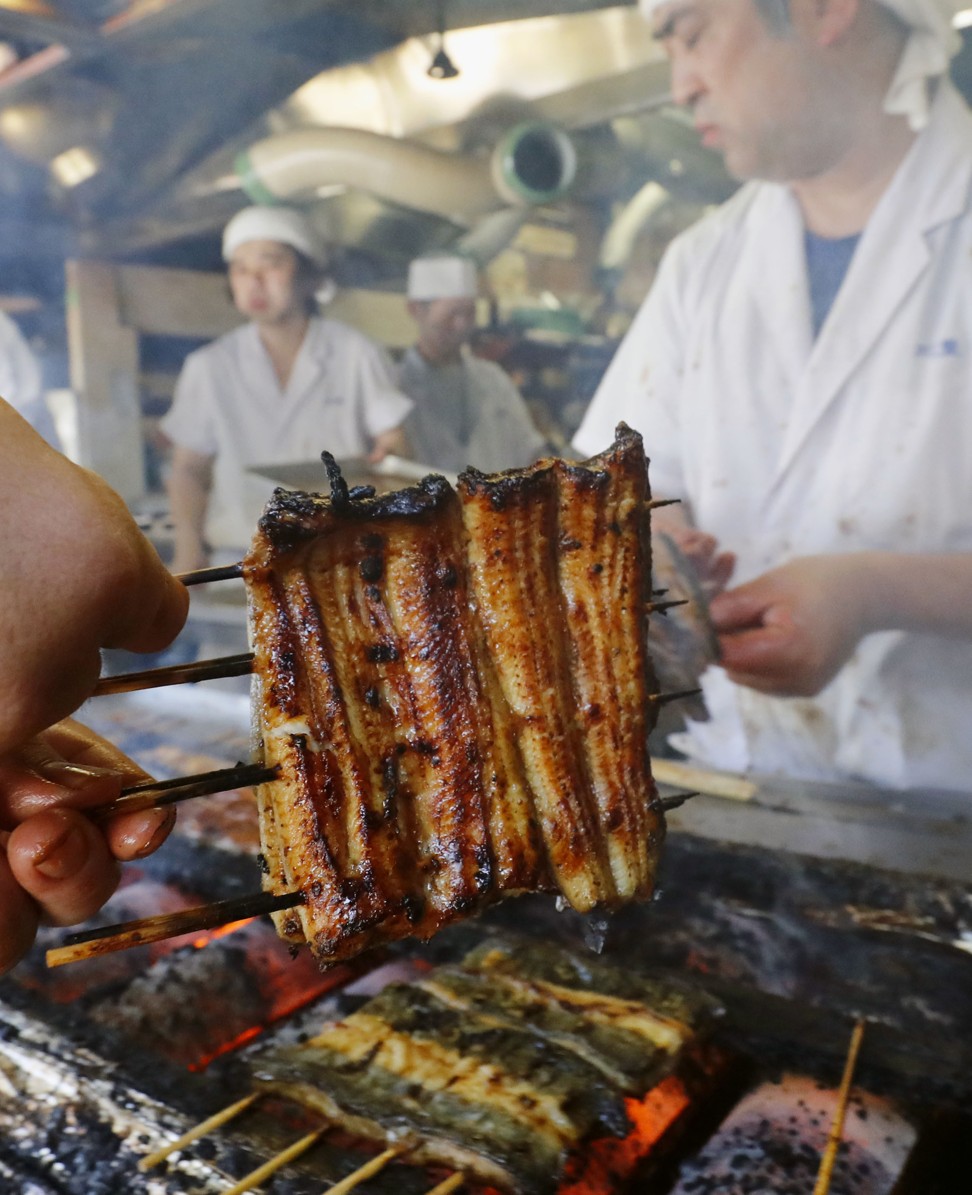
That eel you’re eating in Japan: it may be endangered species smuggled from Spain and farmed in China
Eels are a prized summer delicacy in Japan
A large quantity of young European eels smuggled to China is raised in the country for about half a year before being shipped to the Japanese market, particularly when demand for the snakelike fish peaks every summer, according to a senior Spanish police officer.
The details came to light after Spanish police in April arrested 10 people, including Spanish and Chinese nationals, on suspicion of smuggling a huge amount of European juvenile eels – banned from being exported by the European Union in 2010 – into China during the fishing season of the species between last autumn and this spring.
At the time they were arrested, the police said Japan is a major destination for illegal exports of European eel fry, which is protected under the Convention on International Trade in Endangered Species of Wild Fauna and Flora, known as the Washington Convention.
Juan Luis Garcia, a senior Spanish investigation officer for environmental crimes, told Kyodo that many smuggled juvenile eels are put in aquaculture pools in China around December before being farmed for half a year and shipped to Japan.

Eels are a prized summer delicacy in Japan. On what is traditionally referred to as the “day of the ox” in summer, the second of which for this season falls on Wednesday, Japanese people often eat eel, typically grilled with sweet soy sauce.
The catch of eels in Japan is declining, making them more expensive, but an old saying that consuming the fish on that day helps the body withstand the summer heat is still honoured.
According to Europol, the European Union’s police agency, an estimated 100 tonnes of young eels were smuggled from Europe to China between last autumn and this spring, but it remains unclear how much of the amount was exported to Japan.
Japan’s Fisheries Agency says that major supermarkets in the country do not deal with European eels, but if imported as processed food, there is no way to tell which kind they are.
China is the biggest exporter of the fish to Japan, with about 15,000 tonnes of eel products being shipped to their East Asian neighbour in 2017, according to trade data from Japan’s Finance Ministry.
Despite very poor catches of juvenile eels throughout the region this season, live eel imports from China in the first half of this year rose more than 50 per cent from a year earlier to about 3,166 tonnes.
Imports of eel products including those grilled in the same period declined only slightly to 8,595 tonnes from 9,361 tonnes a year before.
Japan’s efforts to crack down on smuggling eels have been slack. Compared with bluefin tuna, Japan has also been slow to establish a traceability scheme to track the illegal trade of the fish, experts say.
The Spanish police officer said investigative cooperation with Japan will be very important and, if it is achieved, people in China is likely to start regarding shipping European eels to Japan as too risky.

